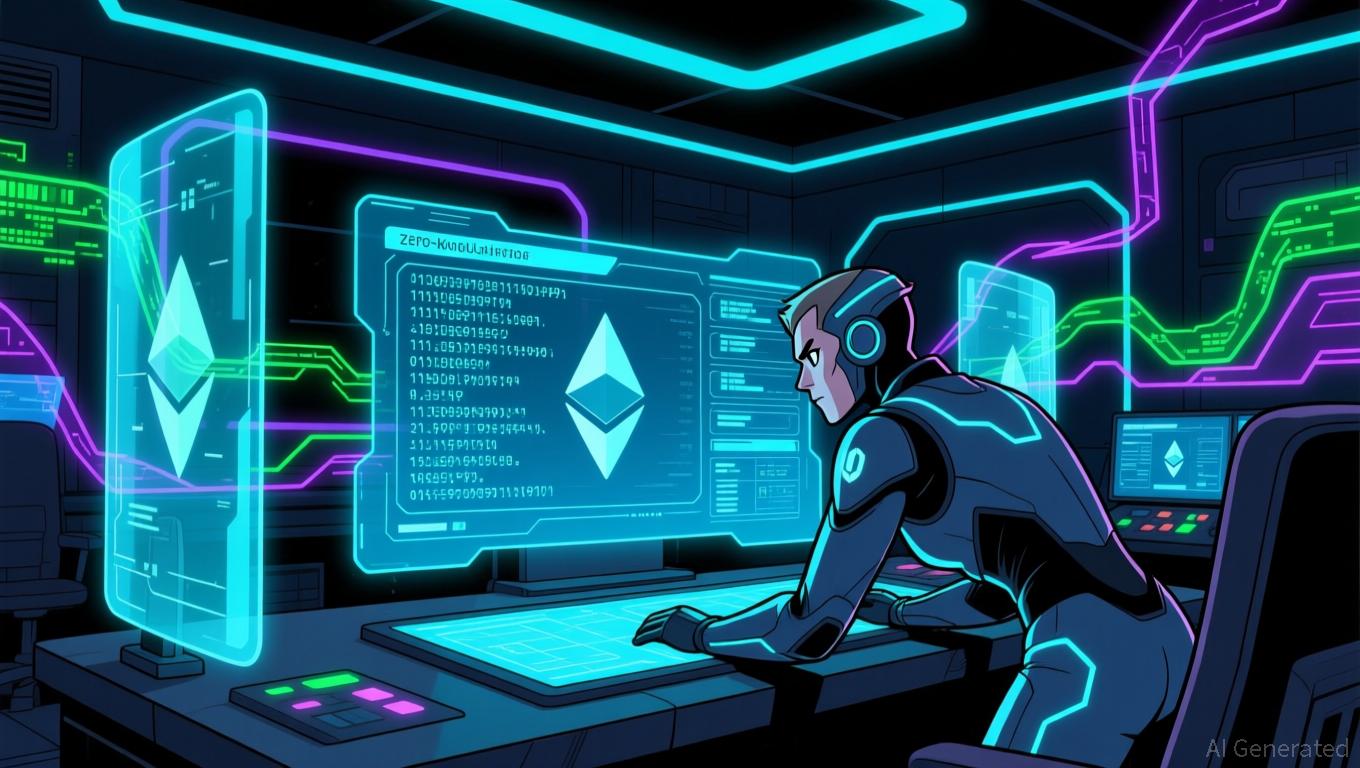Doma Protocol Launches Mainnet, Bringing $360B Domain Industry Into DeFi Ecosystem
As tokenization continues expanding into real-world asset classes, blockchain developers are now turning toward one of the internet’s most established markets: domain names. Today, Doma Protocol launched its mainnet, introducing what it calls the first DNS-compliant blockchain infrastructure for transforming traditional Web2 domains into programmable DeFi assets. The rollout aims to modernize the $360 billion
As tokenization continues expanding into real-world asset classes, blockchain developers are now turning toward one of the internet’s most established markets: domain names. Today, Doma Protocol launched its mainnet, introducing what it calls the first DNS-compliant blockchain infrastructure for transforming traditional Web2 domains into programmable DeFi assets.
The rollout aims to modernize the $360 billion secondary domain ecosystem through fractional ownership, ERC-20 trading, and cross-chain liquidity — all while preserving DNS resolution and adhering to existing regulatory frameworks.
Internet Real Estate Meets DeFi Infrastructure
Operating as a Layer 2 on the OP Stack, Doma leverages LayerZero for cross-chain operability and integrates with Base, Solana, Avalanche, and ENS. At mainnet launch, users can tokenize and trade premium Web2 domains like .com and .ai names as ERC-20 tokens, unlocking programmability and market access for traditionally illiquid assets.
“Domains have always been among the most undervalued internet assets — historically illiquid, slow to transfer, and only accessible to well-capitalized buyers,” said Michael Ho, CBO at D3 Global. “Doma makes these assets programmable and tradable, turning static digital real estate into a liquid market.”
Testnet Data Hints at Developer Demand
The mainnet rollout follows a 5-month testnet phase that saw over 35 million transactions and 1.45 million addresses, according to project data. More than 200,000 domains were tokenized across the test environment, with use cases like software.ai demonstrating onchain fractional trading while maintaining full DNS resolution.
A $1 million developer fund, launched under the Doma Forge initiative, is designed to accelerate integrations and DeFi experimentation on the protocol.
Market Context: Domain Industry Scale Meets Liquidity Gaps
The domain name ecosystem is massive — with over 368 million domains registered globally as of early 2025, according to Hostinger. Yet despite that scale, the secondary market remains highly fragmented and illiquid.
Public data from NamePros shows that in 2024, only around $185 million in domain resales were recorded across 144,700 transactions, with most high-value domains requiring weeks-long escrow or brokerage. The Global Domain Report 2025 (InterNetX/Sedo) confirms these patterns, noting that while registration volume continues to grow, resale activity remains largely inaccessible to smaller investors.
This mismatch between domain market size and liquidity is increasingly drawing attention from crypto builders exploring real-world asset (RWA) tokenization — with domain infrastructure emerging as a potential new category within the DeFi landscape.
ICANN Compliance, Not Another Alt-Root
Unlike alt-root systems like Unstoppable Domains or Handshake, Doma’s infrastructure is fully DNS-compliant, working in partnership with registrars representing over 30 million domains. The architecture introduces two new token standards: Domain Ownership Tokens (DOTs) and Domain Service Tokens (DSTs), preserving utility while adding liquidity.
“The difference is this isn’t a namespace experiment,” Ho said. “It’s a liquidity solution for an existing, regulated asset class.”
What’s Next for Tokenized Domains?
At launch, Doma reports roughly 2,700+ mainnet addresses already activated. Early infrastructure shows about $183,000 in total value locked (TVL), with integration underway through the Doma App, which will introduce yield opportunities, lending, and liquidity pools for domain tokens.
Success now depends on whether domain holders see this as a viable exit or income path — and whether DeFi users embrace domains as yield-generating real-world assets rather than speculative collectibles.
Disclaimer: The content of this article solely reflects the author's opinion and does not represent the platform in any capacity. This article is not intended to serve as a reference for making investment decisions.
You may also like
LUNA Remains Unchanged in 24 Hours as Annual Decline Hits 82% During Market Consolidation
- LUNA remains flat at $0.0747, with a 4.04% 7-day gain but an 82% annual drop, reflecting prolonged bearish trends. - SpaceX’s $105.4M BTC transfer and Tesla’s $1B BTC holdings highlight institutional crypto strategies, though indirect to LUNA’s trajectory. - South Korea’s Nuri rocket success underscores private-sector collaboration in advancing space programs, mirroring global tech trends. - LUNA’s prolonged bearish trend and market consolidation persist amid strategic institutional moves, with recovery
Bitcoin Updates Today: Tether’s Bitcoin Investment Compared to Stability: S&P Raises Concerns Over Unstable Peg
- S&P Global Ratings downgraded Tether's USDT to "weak" due to 5.6% Bitcoin exposure exceeding its 3.9% overcollateralization threshold and limited reserve transparency. - Tether CEO defended the model, citing no redemption refusals and $10B 2025 net profit, while S&P warned Bitcoin/gold price drops could trigger undercollateralization risks. - Market turbulence saw $3.5B Bitcoin ETF outflows and $9.9B Bitcoin holdings, with Tether expanding into gold producers and crypto lending despite regulatory scrutin
Ethereum Updates Today: Blockchain’s Cleanliness Transformation: Privacy Moves from a Choice to a Necessity
- Ethereum co-founder Vitalik Buterin donated to privacy-focused projects Aztec Network and Kohaku, signaling blockchain's shift toward data protection as a core priority. - The Ignition Chain and Kohaku framework aim to address data breaches like SitusAMC by enabling private transactions via zero-knowledge proofs and protocol upgrades. - Ethereum's Fusaka upgrade (2025) and growing $1.2 trillion blockchain messaging market highlight privacy's rising economic and technical importance in decentralized syste

Australia’s Cryptocurrency Regulations Set to Unlock $24 Billion in Value While Enhancing Investor Protections
- Australia introduces 2025 Digital Assets Framework Bill to unlock $24B productivity gains while imposing strict client asset safeguards. - Legislation creates two new crypto financial product categories under Corporations Act, requiring AFSL licensing for platforms and tokenized custody services. - Exemptions for small operators (<$10M volume) balance innovation with regulation, aligning with global trends like U.S. GENIUS Act and SEC's Project Crypto. - Industry debates regulatory proportionality as Aus

